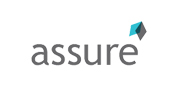Interview – James Sclater, Senior Organisational Development, Assure Programs
 James Sclater is a Registered Psychologist with a Masters in Organisational Psychology. He has extensive experience consulting to public and private sectors, and is passionate about applying psychology principles to support individuals, teams and organisations to achieve and exceed their goals.
James Sclater is a Registered Psychologist with a Masters in Organisational Psychology. He has extensive experience consulting to public and private sectors, and is passionate about applying psychology principles to support individuals, teams and organisations to achieve and exceed their goals.
James’ research has focused on psychological capital and performance in uncertain work conditions. He has a particular interest in applying positive psychology to support employees in coping and flourishing at work. His broad experience includes leadership coaching and development, case management, training and team development. James is skilled in large-scale organisational diagnostics and consulting on strategic objectives and vision.
“I am a Senior Organisational Development Specialist and Registered Psychologist with Assure Programs. My role involves partnering with organisations to design their wellbeing strategy and develop best practice and evidence-based solutions to achieve the ultimate goals of the strategy. In terms of service delivery, the focus of my role has been training and workshop facilitation, resilience coaching, career transition support, leadership and executive coaching, and mentoring”.
What do you feel are the biggest challenges Health, Safety & Wellbeing leaders are currently faced with within their business?
With the greater focus on mental health in the Australian community and workplace more recently, greater expectation and responsibility is being placed on Health, Safety & Wellbeing leaders to develop strategies and reduce psychosocial risk to support the mental health of employees. This can be particularly challenging for this group who have historically focused on physical health (e.g. eliminating physical hazards and preventing accidents and injury) and may have limited education or experience supporting mental health.
As a safety leader, what do you feel businesses continue to get wrong when it comes to their Health, Safety & Wellbeing strategy?
At times, businesses tend to take a more reactive approach to supporting mental health as opposed to a proactive and preventative approach. While a business may have a wellbeing strategy and mental health policies in place, linking those with proactive and preventative solutions has typically been an area for improvement.
What are the latest trends and behaviours you predict will be surfacing on the market over the coming 12 months?
A continued focus on techniques for engaging employees to access support for their mental health. In particular, the use of technology to facilitate access and breakdown barriers.
What is the best piece of advice you have received within your job over the years?
As I am currently adopting more leadership responsibilities in my role, I reflect on what I was told by a colleague relating to leadership when I first started my professional career. “Leaders should take an individualised approach to every employee they lead, considering their personality, what motivates them and how to recognise and reward them”.
What is one key takeaway you hope our OHS audience leaves with after hearing your presentation on site?
A proactive and preventative approach to supporting mental health in the workplace will not only improve the safety and wellbeing of employees, but will likely lead to improved performance, engagement, a reduction in business costs and employee turnover.




